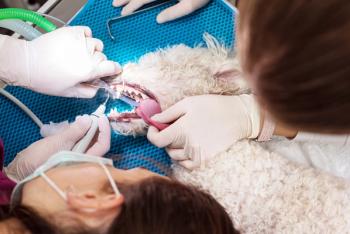
Dog Bacteria Could Possibly Reduce the Risk of Obesity in Owners
A paper published in the Journal of Probiotics & Health says, the tendency for dog owners to be slender could also be due to beneficial dog bacteria that works to up-regulate oxytocin, lowering the risk of obesity.
There are many benefits to owning and interacting with dogs,
However, study authors, in a
In the study, DNA collected from the saliva of eight pet dogs were isolated and measured for Lactobacillus. The experiment sought to explore the role of dog bacteria in weight gain or weight loss of cohabitating animals. Saliva was chosen specifically because the gesture of licking spreads oral cavity microbes onto people’s skin. The researchers sought to determine if dogs could possibly harbor microbes similar to L. reuteri ATCC 6475 bacteria found in human milk that was found to up-regulate oxytocin when fed to
Isolating Lactobacillus to mimic canine-human contact, they fed the purified microbe to a group of test mice. The researchers found, after feeding the mice L. reuteri daily for nine months, that the mice had significantly lower body weights than the controlled animals.
The researchers concluded that, “the data builds upon earlier studies in mice showing that L. reuteri ATCC6475 from human breast milk lowers body weight and up-regulates oxytocin levels in blood. We found that bacteria isolated from dog saliva, L. reuteri 2546, may regulate inflammation and host body weight involving mechanisms of oxytocin, raising interesting evolutionary cohabitation questions and therapeutic possibilities. The discovery that sterile microbial products also achieve similar benefits paves the way for novel therapeutics for good health.” Additionally, the researchers found that sterile extracts of microbes possess fewer health risks for people with compromised immune systems.
The study points out that similar weight loss has occurred in obese individuals who consumed purified L.rhamnosus. There have also been studies that show microbe-induced oxytocin to modulate immunity by inducing a return to health after injury at a more rapid rate.
However, researchers also noted that although, “bacteria in dog saliva, or microbiota from other pet or farm animals, may have beneficial properties, caution is warranted involving zoonotic organisms that readily transmit diseases between species.” This means that strategies to maximize the benefits of bacteria exposure while also lowering and even limiting the risk of zoonotic diseases must also be considered in future research.
Newsletter
From exam room tips to practice management insights, get trusted veterinary news delivered straight to your inbox—subscribe to dvm360.




